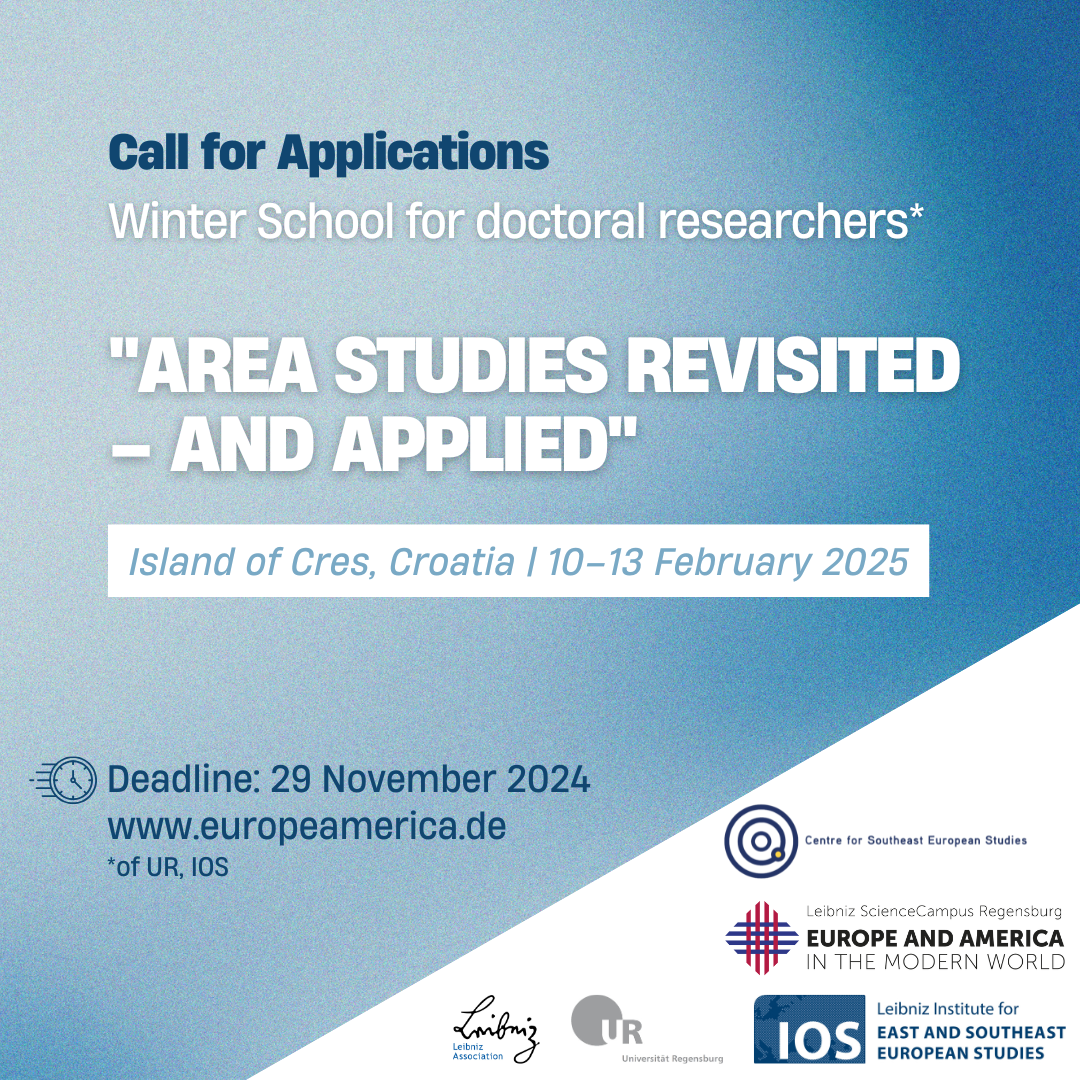Internal CfA: Winter School "Area Studies Revisited – and Applied" | Island of Cres | 10–13 February
Deadline? 29 November 2024
When? 10–13 February 2025
Where? Island of Cres, Croatia
The ScienceCampus together with the University of Graz is organizing a retreat in the form of a Winter School for doctoral researchers, taking place on the Croatian island of Cres from 10–13 February 2025. We are able to cover the costs of travel and accommodation for doctoral scholars from Regenbsurg. Doctoral researchers should send a short letter of motivation (max. 1 page) outlining their reasons for applying by 29 November to campus@europeamerica.de.
The joint doctoral retreat serves a debate about fundamental concepts and methodologies of Area Studies, a critical reflection on recent trends in this field, and a discussion of their applicability to the individual doctoral projects of the participants. The retreat will be organized by the Centre for Southeast European Studies in Graz and the Regensburg-based Leibniz ScienceCampus “Europe and America in the Modern World.”
Potentials and Pitfalls of Area Studies
“How we run depends on what shoes we have to run in.” Thus social anthropologist Ana Lowenhaupt Tsing summarized the importance of place and material possibilities in a globalized world. The world has increasingly become an interconnected one, which is highlighted by the popularity of concepts such as transnationalism or globalization. At the same time, it remains a highly divergent and unequal place. We therefore need to look not only what is connecting, but also what is connected. Even thoroughly globalized places have their own histories and are embedded into specific institutional networks and cultural value-systems.
Area Studies have therefore an important role to play in making sense of a changing, but entangled world. They exist between global studies and local studies, and can act as a translator between these two scales. Area Studies are supposed to produce ‘thick’ knowledge rooted in empirical research in the areas of interest. Since Area Studies are usually defined by a common geographic (regional) denominator, they include different disciplines. Language proficiency, interdisciplinarity, and a dialogue with locally produced research are often cited as the particular epistemic advantages of Area Studies. Area Studies are sensitive to the importance of space (place), while they are also well placed to evaluate the concrete impact of entanglements and interactions.
Yet, to fulfil their potential, Area Studies must also reflect on drawbacks and pitfalls, some of them rooted in the genealogy of this academic pursuit, which was established in the context of imperialism. How, for example, to deal with the tension between the idea of area and the recognition of its heterogeneity? If areas cannot be clearly defined, what is the subject of Area Studies? What about the problem of essentializing certain areas and thus limiting the scope of our curiosity – such as masterfully described by Maria Todorova for the Balkans? How can claims of specificity and uniqueness of a certain area be balanced with a recognition of differences within this claimed area, and similarities with other areas? This also raises the question of the relationship between Area Studies and disciplinary knowledge – a particular point of tension in social sciences (such as economics or political science) which operate with universalistic assumptions. How to deal with inequalities in knowledge hierarchies, as Area Studies usually are a “Western” pursuit? Area Studies that limit their own knowledge horizon would be just another word for not knowing what is happening in other societies and regions of the world.
The focus of discussions and readings in Cres will be on five key questions:
- What are the ideological legacies of Area Studies and their analytical limitations?
- How can we study ‘regions’ without presupposing their existence and salience; how to avoid methodological regionalism?
- How does Area Studies knowledge relate to locally produced knowledge on the one hand, and to global studies on the other?
- What is the contribution of Area Studies to ‘general disciplines’; can they provide more nuance to excessive generalizations and question the applicability of universal models?
- What is the relationship between the trans-local and the local, between entanglement and emplacement, between transregional connections and the gravity of place?
We will discuss these issues by looking into the traditions and methodologies of different Area Studies traditions and by following ongoing debates on “Comparative / Transregional / New, etc., Area Studies”. The discussion is not limited to the abstract: participants will situate their own research in these debates. Our hope is that an engagement with Area Studies debate will be fruitful for each doctoral project present. Which is also why we invite comparative perspectives and participants working on different areas of the world. Such an exercise will also help the Southeast Europeanists present to contextualize their work in a broader analytical framework.

